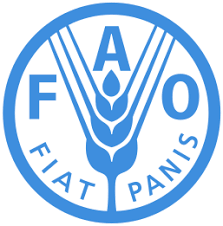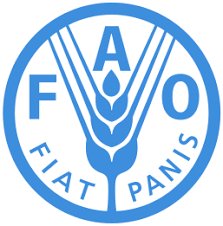Focal point
Location
The Food and Agriculture Organization of the United Nations leads international efforts to defeat hunger. Serving both developed and developing countries, FAO acts as a neutral forum where all nations meet as equals to negotiate agreements and debate policy. FAO is also a source of knowledge and information. We help developing countries and countries in transition modernize and improve agriculture, forestry and fisheries practices and ensure good nutrition for all. Since our founding in 1945, we have focused special attention on developing rural areas, home to 70 percent of the world's poor and hungry people.
Members:
Resources
Displaying 2101 - 2105 of 5074ICT IN SUPPORT OF EVIDENCE BASED POLICY MAKING: LAND AND GENDER IN THE WESTERN BALKANS
March 2014 – This article presents a joint FAO and World Bank initiative to integrate the Voluntary Guidelines on the Responsible Governance of Tenure of Land, Fisheries and Forests in the Context of National Food Security principles on gender equality into the Bank financed land administration projects in six Western Balkans countries. Even though the land agencies generate inordinate amounts of data, these are not efficiently used to inform policy makers, because of lack of capacity and manpower to properly process and link them between sub-sectors and over time.
СТРАТЕГИЯ ОСУЩЕСТВЛЕНИЯ ГЛОБАЛЬНОГО ПЛАНА ДЕЙСТВИЙ ПО СОХРАНЕНИЮ, УСТОЙЧИВОМУ ИСПОЛЬЗОВАНИЮ И РАЗВИТИЮ ЛЕСНЫХ ГЕНЕТИЧЕСКИХ РЕСУРСОВ
Meeting Name: Intergovernmental Technical Working Group on Forest Genetic Resources (of the CGRFA) - ITWG-FGR
Meeting symbol/code: CGRFA/WG-FGR-3/14/3
Strategy for the Implementation of the Global Plan of Action for the Conservation, Sustainable Use and Development of Forest Genetic Resources
Meeting Name: Intergovernmental Technical Working Group on Forest Genetic Resources (of the CGRFA) - ITWG-FGR
Meeting symbol/code: CGRFA/WG-FGR-3/14/3
استراتيجية تنفيذ خطة العمل العالمية لصون الموارد الوراثية الحرجية واستخدامها المستدام وتنميتها
Meeting Name: Intergovernmental Technical Working Group on Forest Genetic Resources (of the CGRFA) - ITWG-FGR
Meeting symbol/code: CGRFA/WG-FGR-3/14/3
The IPC Land working group meets with FAO
Statements on the national implementation of the Voluntary Guidelines on the Responsible Governance of Tenure of Land, Fisheries and Forests.








